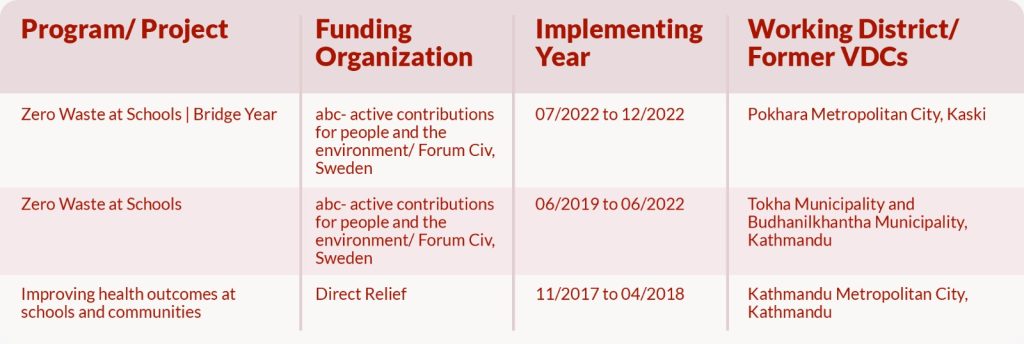Education (environmental and sustainable solid waste management)
Education plays a pivotal role in CLEAN UP NEPAL's mission to promote sustainable waste management practices and build a conscientious community. Through its thematic area of "Education (Environmental and Sustainable Solid Waste Management)," the organization recognizes that awareness and knowledge are essential catalysts for positive change in waste management behaviors.

First and foremost, CLEAN UP NEPAL places significant emphasis on highlighting the importance of education and awareness in fostering sustainable waste management practices. They understand that informed individuals are more likely to make responsible choices when it comes to waste disposal and recycling. By providing information and raising awareness about the environmental and health impacts of improper waste handling, CLEAN UP NEPAL equips individuals with the knowledge needed to make informed decisions.
One of the key strengths of CLEAN UP NEPAL's approach lies in its ability to engage various segments of the population, including youth, students, and communities. The organization recognizes that these groups are instrumental in shaping attitudes and behaviors regarding waste management. By actively involving youth and students, CLEAN UP NEPAL fosters a sense of responsibility and environmental stewardship among the next generation. Through community engagement, they reach a broader audience, creating a grassroots movement for responsible waste disposal.
An essential goal of CLEAN UP NEPAL's education initiatives is to encourage behavior change and the adoption of responsible consumption patterns. This involves not only informing individuals but also inspiring them to take action. By showcasing the positive impact of recycling, waste reduction, and responsible disposal, the organization motivates people to integrate these practices into their daily lives. The result is a more responsible and environmentally conscious community that actively participates in sustainable waste management.
Furthermore, education in waste management extends beyond the immediate benefits of reducing pollution and promoting environmental sustainability. It empowers individuals and communities to take control of their environment and contribute to broader societal goals. As people become more aware of the interconnectedness of their actions and the well-being of their communities, they are more likely to engage in collective efforts to create cleaner, healthier, and more sustainable living spaces.

